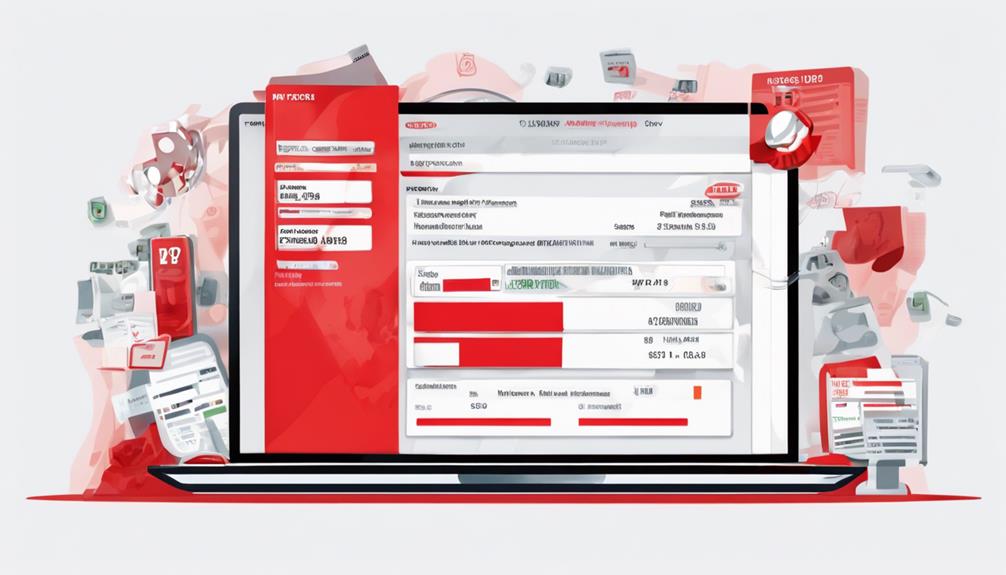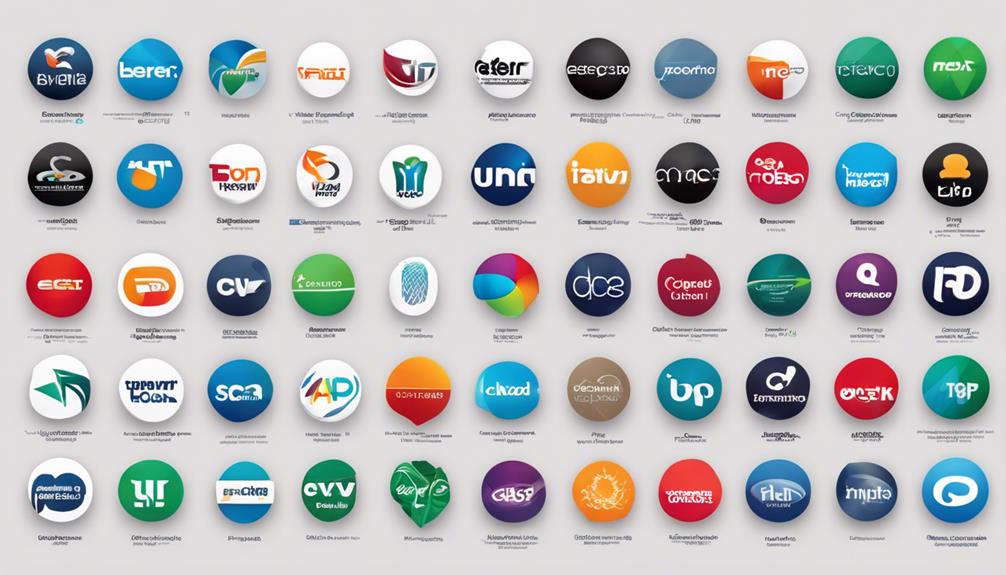In the card processing cycle, you start with authorization, where your bank verifies funds and approves your transaction. Next comes clearing, where banks group and exchange transaction details to prepare for transfer. Finally, settlement involves funds moving from the issuing bank to the merchant’s account, completing the payment. Each step guarantees your transaction is secure and accurate. To understand how these steps work together seamlessly, continue exploring the detailed process behind electronic payments.
Key Takeaways
- Authorization verifies funds and fraud risk before transaction approval, involving card schemes and issuing banks.
- Clearing groups transactions into batches and exchanges detailed information between issuing and acquiring banks.
- Settlement transfers funds from the issuing bank to the acquiring bank after clearing completes.
- The acquiring bank deducts fees and deposits the remaining amount into the merchant’s account during settlement.
- The entire process ensures secure, accurate, and timely electronic payment completion.

Have you ever wondered how your card transaction gets from your wallet to the merchant’s account? When you swipe, insert, tap, or enter your card details online, you’re starting a complex process that involves multiple steps and key players. First, your transaction request is sent to a payment processor, which acts as the middleman. The processor forwards your transaction details—like the amount, your card number, and merchant info—to the acquiring bank, which is the merchant’s bank. The acquiring bank then contacts the card scheme, such as Visa or Mastercard, to initiate the authorization process.
The card scheme routes the authorization request to your issuing bank, the bank that issued your card. Your bank evaluates the request by verifying your account’s validity, checking if you have sufficient funds, and scanning for any fraud indicators. Based on this evaluation, your bank generates an authorization response—either approval or decline—which is sent back through the same channels: the card scheme, the acquiring bank, and ultimately to the merchant. If approved, the merchant completes the sale; if declined, the transaction is halted. Authorization is a critical step that confirms the transaction can proceed before funds are transferred. This process involves secure data transmission to protect your sensitive information during each stage of the cycle.
Once the transaction is authorized, the process moves into clearing. In this phase, multiple transactions are grouped into batches by the acquiring bank. Instead of processing each one individually, the bank forwards these grouped transactions to the card scheme. The card scheme then routes the batch to the respective issuing banks for verification. During clearing, all financial institutions involved exchange information about the transactions, ensuring each party is aware of their responsibilities. This step is vital because it prepares everyone for the final step: settlement.
Settlement is where the funds actually transfer from your account to the merchant’s account. After the banks confirm their obligations during clearing, they facilitate the transfer of money. The acquiring bank receives the funds, deducts any applicable fees—like interchange fees—and deposits the remaining amount into the merchant’s account. The time it takes for settlement can vary depending on the banks, the agreements in place, and the transaction type. Throughout this process, various fees are involved, and the entire cycle is carefully recorded in the banks’ accounting systems to finalize the transaction.
Throughout this cycle, several key players work seamlessly together: payment processors handle communications, banks verify and transfer funds, card schemes manage network routing, merchants initiate the transactions, and you, the cardholder, are the end-user. Whether it’s a card-present or card-not-present transaction, the process follows these core steps to guarantee your payment reaches the merchant securely and accurately. This intricate dance of authorization, clearing, and settlement makes modern electronic payments quick, reliable, and safe.
Frequently Asked Questions
How Do Chargebacks Impact the Processing Cycle?
Chargebacks disrupt your processing cycle by halting the normal flow until disputes are resolved, causing delays in fund settlement. When a chargeback occurs, you face longer authorization-to-settlement times, increased workload for customer service, and potential account holds. These disruptions also lead to operational costs and cash flow issues, as processing pauses and dispute handling extend timelines and require extra resources, ultimately impacting your overall transaction efficiency and financial stability.
What Security Measures Protect Cardholder Data During Transactions?
You protect cardholder data during transactions with strong security measures like data encryption, which keeps information safe in transit and at rest. You also restrict access to authorized personnel, monitor systems in real-time, and implement multi-factor authentication for user verification. Using tokenization replaces sensitive data with secure tokens, and biometric or passkey authentication adds extra layers of security, ensuring data remains protected throughout the transaction process.
How Are Transaction Disputes Resolved Between Parties?
When a dispute arises, you start by contacting your issuer within the required timeframe and providing supporting documents. The issuer investigates by reviewing evidence from you and the merchant, often issuing a provisional credit. Both parties may exchange proof through their respective channels. The issuer then reviews everything and makes a final decision, either confirming the credit or reversing it, usually within about 30 days, resolving the dispute.
What Role Do Payment Gateways Play in Processing?
You play a key role in processing by using a payment gateway to securely transmit your payment details from your website to the payment processor. The gateway encrypts your information, performs security checks, and sends the transaction request. It then provides real-time updates on whether your payment was approved or declined, ensuring a smooth and secure payment experience. This process helps facilitate quick and safe transactions for both you and the merchant.
How Does Real-Time Processing Improve Transaction Efficiency?
Real-time processing boosts transaction efficiency by enabling instant transfer of funds and data. You get immediate confirmation, reducing delays and manual errors. This quick flow helps you resolve issues faster, improves cash flow, and allows for smoother operations. Plus, real-time updates support better fraud detection and automation, making your payment processes more reliable and cost-effective. Overall, it streamlines your transactions, saving time and enhancing customer satisfaction.
Conclusion
By understanding authorization, clearing, and settlement, you gain clarity, confidence, and control over the card processing cycle. You see how each step guarantees security, accuracy, and efficiency. You recognize how authorization verifies your transaction, clearing prepares the data, and settlement completes the payment. Embracing this knowledge empowers you to navigate the payment process seamlessly, making transactions smoother, safer, and more transparent. Ultimately, you take charge of your financial interactions with confidence, clarity, and ease.









